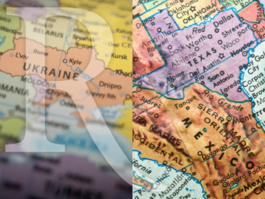Managing Risk in an Unstable World
A Commentary By Michael Barone
How can we reduce risk for individuals? That's a natural question when a financial crisis has vaporized trillions of dollars of personal wealth in residential real estate and financial instruments. The problem is, when you try to reduce risk for individuals too much, you end up making things much more risky.
Case in point: the financial system over the past decade. Our current difficulties arose from "the idea," as Nicole Gelinas describes it in the New York Post, "that any loan, bond or other bank asset could be sliced up and turned into an instantly liquid, priceable and tradeable security, with all its risks engineered away." The securitization of mortgages seemed to reduce risk for everyone -- for the lender (who avoided risk of non-payment by selling the mortgage), for the borrower (who got the mortgage at a lower rate than otherwise) and for the purchaser (because all those mortgages couldn't got belly up at once, could they?).
The problem was that the risk models were based on the experience of only the last seven years or so, and that both the Clinton and Bush administrations and Fannie Mae and Freddie Mac encouraged the granting of mortgages to borrowers who were, by previous standards, non-creditworthy.
So eliminating risk ended up creating huge risk for everyone -- so huge that just about no one, even the Treasury armed with $700 billion -- wants to purchase the securitized mortgages in bank portfolios.
Or take another case recently in the news. The United Auto Workers, a forward-thinking union, wanted to eliminate the risk for its members of retiring without comfortable pensions and entirely free medical care. So they negotiated contracts with what we used to call the Big Three U.S. auto companies that guaranteed UAW retirees big pensions and free medical care for life.
But that assumed that the companies could always fund those benefits. If, as now seems possible, the Detroit Three go bankrupt, those pensions will be replaced by limited government pensions and those free retiree health benefits will vanish altogether. Eliminating risk turned out to be very risky.
Which is my answer to those, like Yale Professor Jacob Hacker, who advocate public policies to reduce risk for individuals. In his book "The Great Risk Shift," Hacker argues that the move over the past 25 years from defined-benefit pensions (in which an employer pays into a pension fund) to defined-contribution pensions (in which an employer pays into every employee's personal investment account) makes life unbearably risky for ordinary people. And to be sure, almost everyone's 401(k) account has shrunk over the last three months.
But are those people worse off than Detroit Three retirees? Their 401(k)s may rise in the years ahead. The Detroit Three pensions are at risk of being permanently slashed.
My own sense is that ordinary Americans are more resilient than some theorists think. They form and act upon what Milton Friedman called the permanent-income theory and Franco Modigliani called the life-cycle theory -- that is, they develop a pretty good idea of their long-term earning capacity and their ability to accumulate wealth, and spend accordingly.
They may shift these expectations in a crunch, and may be doing so now, as purportedly risk-free financial products and corporate pensions are revealed as hugely risky. But through thick and thin they're constantly calibrating and recalibrating the amount of risk they should take. And while some people make bad decisions, all those decisions put together seem to have proved less risky than Fannie Mae's securitized mortgages or the UAW's retiree health care benefits.
There are good arguments for safety net programs like Social Security, which eliminate severe downside risk -- or at least eliminate it if Social Security has a sound long-range financing scheme, which it may not. Curiously, most current policymakers seem more concerned about the risks of climate change, about which there is much uncertainty, than the risks of Social Security collapse, about which the numbers seem much more certain.
My larger point is that eliminating risk entirely is an impossibility, and mitigating risk intelligently means not only maintaining sensible safety nets but, more importantly, stoking the engines of economic growth.
Happily, President-elect Obama's top economic appointees seem to have a similar understanding. A capitalist economic system, which enables risk-taking through intelligently structured and regulated financial markets, has been proven by history to be, as Winston Churchill might have put it, the most risky system except for all those other economic systems ever devised.
Let's try it again, this time keeping a gimlet eye on those who tell us they have schemes that can eliminate risk altogether.
Rasmussen Reports is a media company specializing in the collection, publication and distribution of public opinion information.
We conduct public opinion polls on a variety of topics to inform our audience on events in the news and other topics of interest. To ensure editorial control and independence, we pay for the polls ourselves and generate revenue through the sale of subscriptions, sponsorships, and advertising. Nightly polling on politics, business and lifestyle topics provides the content to update the Rasmussen Reports web site many times each day. If it's in the news, it's in our polls. Additionally, the data drives a daily update newsletter and various media outlets across the country.
Some information, including the Rasmussen Reports daily Presidential Tracking Poll and commentaries are available for free to the general public. Subscriptions are available for $4.95 a month or 34.95 a year that provide subscribers with exclusive access to more than 20 stories per week on upcoming elections, consumer confidence, and issues that affect us all. For those who are really into the numbers, Platinum Members can review demographic crosstabs and a full history of our data.
To learn more about our methodology, click here.



